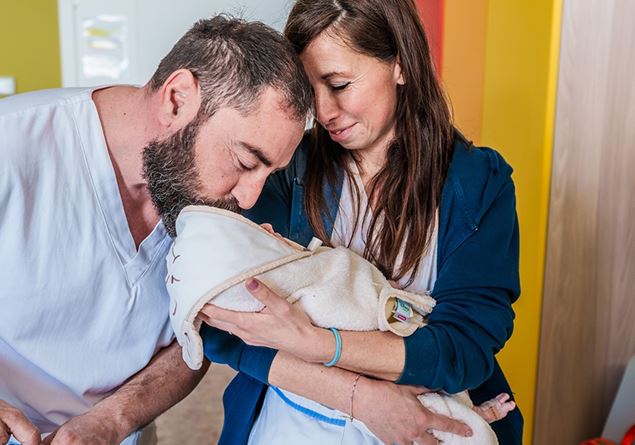“The person will end up forgetting the discussion. On the other hand, what is likely to stay with them is this feeling of “I can’t do it”.”
With 1.2 million people affected, Alzheimer’s disease is the most common neuroprogressive pathology in France. It results in progressive and irreversible damage to the brain, the signs of which appear most often after the age of 65, impacting communication, daily life and the relationship that the person has with the world around them.
Memory problems, difficulties in managing tasks, impaired judgment, language disorders, temporo-spatial disorientation are among the first symptoms that must be identified. “When you identify these signs and they last over time, you must consult your general practitioner who can refer you to a specialist for additional examinations,” explains Anne Baccouche, clinical psychologist and project manager for the France Alzheimer and related diseases association. “We can observe in the person a loss of motivation, a change in mood, changes in character, movements of anxiety and depression, irritability, without the sick person or their loved ones understanding why.” These changes are not always easy for the family to understand, even though they are often the primary caregivers for the sick loved one.
“If we count caregivers, up to 3 million people are directly affected by Alzheimer’s disease” underlines Anne Baccouche. “The illness affects the entire family unit and can impact a couple’s relationship and a parent/child relationship.” It is important to know how to support a loved one with Alzheimer’s and this starts from the time of diagnosis. “The announcement to the patient and his family of Alzheimer’s disease is truly a key moment. It can be experienced as brutal but it is an essential moment which can condition the way in which things will subsequently evolve within of the family and in the way in which the loved one will position themselves as a caregiver” continues the clinical psychologist.
She recommends that the sick person and their loved one take the time to communicate, to share their questions, doubts, fears and desires. “even if it is sometimes difficult to put the situation into words.” When the disease is established, Anne Baccouche notes 4 behaviors to avoid to avoid disorienting the patient:
- first a sentence that we say to try to reason with the person at all costs: “But you remember, we already talked about it, I told you.” It is best to try to understand the possible concern behind the repeated behavior.
- return the fact that she forgot with gestures of annoyance (huffing, raising your voice) or try to reason with her at all costs: “The person will end up forgetting the discussion. On the other hand, what is likely to stay with them is this feeling of “I can’t do it, it’s not going well”” warns the specialist.
- speak for her: it is rather recommended to encourage her to share what she is experiencing.
- lie to him: “This will prevent them from making sense of what is happening and as a caregiver, you may feel guilty about lying to your loved one.” Instead, you should explain things gently, adapting to your level of understanding.
For Anne Baccouche, the right attitude is to assure the person of your support and presence, to listen to them attentively and to show them that you understand what they are feeling. “because the sick person can be aware of their difficulties”. The quality of the relationship and communication between the sick person and their environment has a significant impact on the experience of the illness. “We must be able to walk together in the face of illness”concludes the clinical psychologist. For any questions and/or need for support, do not hesitate to contact associations such as France Alzheimer and related diseases. Isolation can happen quickly, you have to anticipate it.








